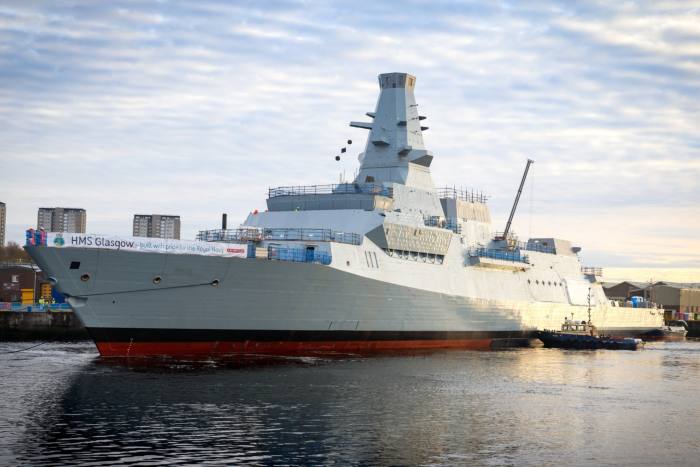Receive free Aerospace & Defence updates
We’ll send you a myFT Daily Digest email rounding up the latest Aerospace & Defence news every morning.
British MPs have criticised the country’s military procurement system, saying it is “well and truly broken” and puts troops in “harm’s way” just two days before the Ministry of Defence is due to publish its strategy for the UK’s armed forces.
The war in Ukraine has exposed weaknesses in the British military, including depleted stockpiles of vital ammunition, outdated equipment and a land army at its smallest since the 1800s. MPs said in a report that the UK risked being unable to meet its commitment to Nato to field an armoured fighting division.
On Tuesday, the MoD is set to lay out how it will counter the growing threat from countries such as Russia, alongside its plans to incorporate new technologies such as drones and artificial intelligence.
The parliamentary defence committee’s 60-page report said that the MoD needed to “put its house in order” if it was to receive more funding from the treasury to boost Britain’s military capabilities and make the improvements that “we strongly believe it needs”.
“For the first time since the end of the cold war, we have to face the prospect that we could become involved in a peer conflict with Russia,” the committee said. “In this new, more challenging environment we need a defence procurement system which can . . . equip our armed forces to fight and to win.”
The report made 22 detailed recommendations on how to reform Britain’s procurement process, including an unfavourable comparison with France “which is often able to procure more quickly and efficiently . . . than its UK counterpart”.
Among its case studies, it focused on the delayed delivery of eight anti-submarine Type 26 frigates, comparing it with a similar warship that Japan brought into service in a third of the time It also looked at the purchase of three E-7 Wedgetail surveillance planes for £1.9bn, versus an original order for five planes for £2.1bn — a purchase price that it said “represented extremely poor value for money”.
The review is only the latest damming inquiry into the MoD’s procurement process. It comes at a critical time for Britain’s armed forces.
The UK faces what prime minister Rishi Sunak has called a world increasingly defined “by danger, disorder and division”. However, Britain’s armed forces were described this year as “hollowed out” by defence secretary Ben Wallace, despite an annual £50bn budget, the second highest in Nato.
The MoD’s defence command paper refresh, commissioned after Russia launched its full-scale invasion of Ukraine last year, will lay out how the UK plans to reshape its armed forces to meet these challenges.
Among its priorities will be how to get better value for money from the £242bn of new equipment that the MoD has budgeted for over the next decade.
Admiral Sir Tony Radakin, head of Britain’s armed forces, told the defence committee this month: “We need to have deeper stockpiles, we need to be more lethal and we need to increase our productivity. He added: “I wouldn’t say I’m happy.”
Other priorities are likely to include a focus on what James Heappey, armed forces minister, has called the “boring stuff”, such as logistics and spare parts, which increase military capabilities but do not involve flashy new equipment.
Heappey told a global air and space conference this week: “If you’ve been in the department for long enough, what you come to see quite quickly is there is a queue out of your office and down the corridor every day to sell you a plane or a tanker ship. But what you really have to get into is the stuff that nobody ever notices [or] ever writes a headline over.”
The MoD said that defence procurement was not broken and that there was no evidence to suggest poor oversight on the Type 26 frigate, adding that two spare Wedgetail radars had been “retained for future . . . requirements”.
“We know there is more to do, including to increase pace and professionalisation, and we expect to set out the next steps for acquisition reform in the Defence Command Paper. “.









